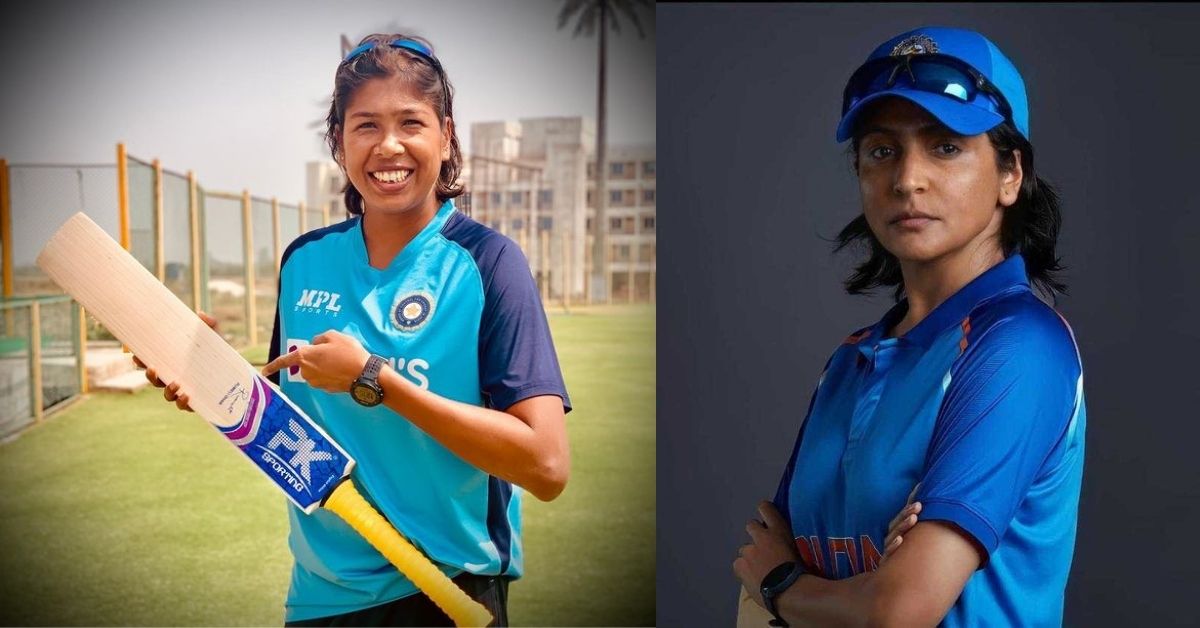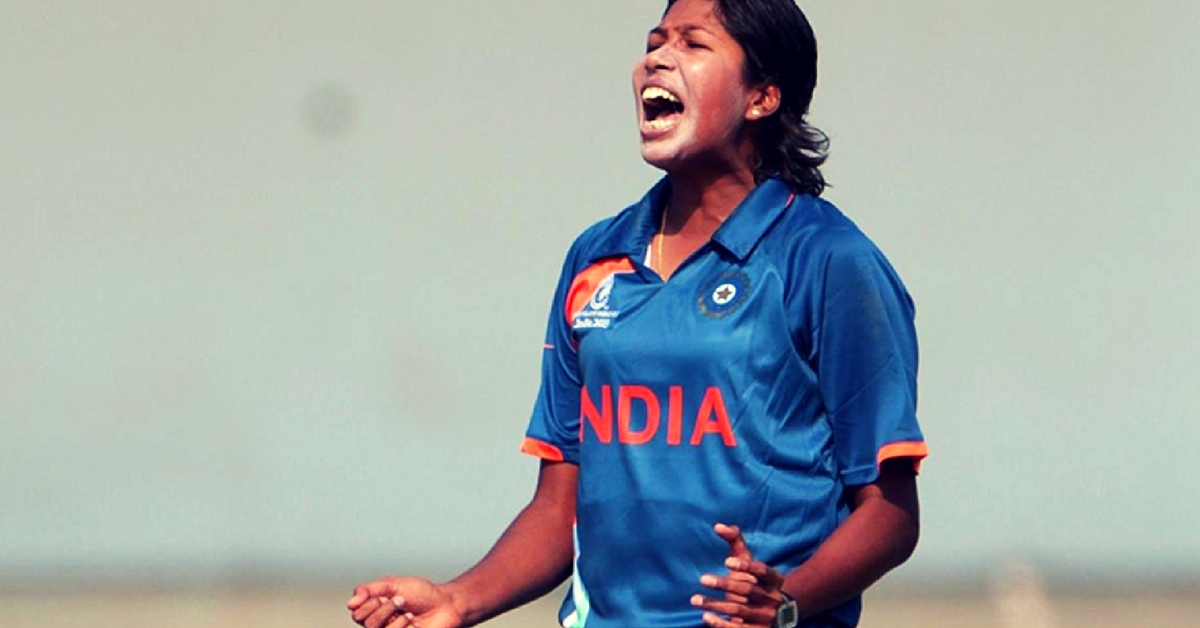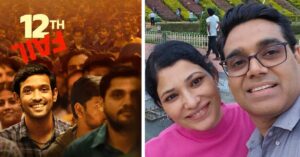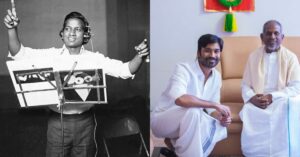Chakda Xpress: Jhulan Lived In A Tin Roof Home, Fought Off Judgmental Relatives
Netflix's Chakda Xpress shows the real life story of Jhulan Goswami, the girl from a small Bengal town who defied huge odds to create history in the world of women's cricket.

“Kitne logo ne daanta mujhe. ‘Ladkiyan bhi cricket khelti hain? Beta, padhayi-likhayi bhi karte ho kya?’(I was scolded by a lot of people. ‘Girls also play cricket? Do you even study?).”
Before Jhulan Goswami (39) carved a spot as one of the fastest bowlers in the history of women’s cricket, she battled misogynistic taunts from both relatives and society to make her international debut at the age of 19.
The former captain of the Indian women’s cricket team was born in Chakdah town of West Bengal’s Nadia district. Previously a football fan, she developed a passion for cricket after catching the 1992 World Cup on TV, following which she started playing the sport with boys in her neighbourhood.
An Arjuna Award recipient, Jhulan also became the second Indian woman cricketer, after Diana Edulji, to be conferred the prestigious Padma Shri in 2012.
In 2016, she was ranked first in the ICC Women’s One Day International (ODI) bowling rankings. It was on 7 February 2018, though, that she helped India make cricketing history by becoming the world’s first woman cricketer to have an astounding 200 wickets to her credit in ODI cricket.
Now, Bollywood actor Anushka Sharma is set to portray Jhulan’s inspiring underdog story in Chakda Xpress, directed by Prosit Roy and produced by Clean Slate Filmz, the venture owned by the actor and her brother. The film, slated for a Netflix release, is being touted as the first biopic on a woman cricketer.
“At a time when Jhulan decided to become a cricketer and make her country proud on the global stage, it was very tough for women to even think of playing the sport. This film is a dramatic retelling of several instances that shaped her life and also women’s cricket,” the actor said in a statement issued by the OTT platform.

‘No regrets about what I chose’
Jhulan’s journey began in a two-room house with a tin roof in Chakdah, where she grew up with two siblings and her parents. In an interview with FemaleCricket, she pointed out that daughters of Bengali middle-class families are traditionally expected to pursue the extracurricular activities dancing and singing, and what she wanted to do was considered “unusual”.
She began playing the sport with boys in her aunt’s locality, and recalled how they weren’t keen on having her join the team. “They wouldn’t let me bowl, would say your ball is slow. That’s how I developed this urge to bowl fast,” said Jhulan, who for many years clocked a bowling speed of 120kmph, which was, at one point, the world’s fastest.
As the small town didn’t have enough sporting facilities, Jhulan convinced her parents to let her go to a coaching centre in Vivekananda Park in south Kolkata. But she faced resistance from her extended family, who questioned why a school girl should be permitted to travel to another city by herself.
In an episode of Breakfast with Champions, she recalled how it was a huge challenge for her to make her orthodox relatives understand her aspirations at a time when women weren’t associated with cricket in India. But with undeterred support from her grandmother, she could win them over.
“Kitna bhi mummy, papa, uncle, aunty log chillaye mujh par, at the end of the day koi bhi grandma ke upar ja ke baat nahi kar sakta (No matter how much my parents, uncles and aunts scolded me, nobody could override my grandmother’s word),” she said.
And so, Jhulan began travelling in local trains for as many as five hours for daily practice sessions that began at 7.30 am — a move that impacted her education.
“It was really difficult, as the ground was very far from my house, and I had to prioritise between my education and cricket. Because if you focus on school too, you feel sleepy, drowsy and [unable] to concentrate. From 4.30 am to 5 am, I had to wake up, catch the train, walk to the ground, and then do heavy training there, before again rushing back, at which point your mind is unwilling to concentrate on anything. So, somewhere down the line, you have to choose what you’re truly passionate about and I have no regrets about what I chose,” Jhulan told WomensCricZone.
Jhulan has also been vocal about her gratitude to her first coach Swapan Sadhu, who travelled all the way to Chakdah to convince her family to train her. She said he once told her, “Maine itne ladki log ko cricket sikhaya lekin aapke jaisa high-arm bowling action kisi ka nahi dekha. Uske baad agar main aapko support nahi karta toh ek waste of talent ho jaata. (I’ve taught so many girls how to play cricket, but never seen high-arm bowling action like yours. Had I not supported you despite that, a talent would’ve been wasted).”
‘Team India is not just…’
After completing her training in Kolkata, Jhulan joined the Bengal women’s cricket team. It was in 2002 that she made her international debut in Chennai, in a one-day match against England.
She played an instrumental role in the Indian women cricket team’s victory over England in a pivotal test series in the 2006-2007 season. This ultimately led her to win the ICC Women Cricketer’s Award, in a year when no Indian male player had bagged any individual award.
In 2017, Jhulan also beat Cathryn Fitzpatrick’s records to become the highest wicket-taker in women’s ODI history. Notably, the former Australian cricketer was one of the driving forces that led Jhulan to pursue cricket.
In an interview with The New Indian Express, Jhulan noted how it didn’t matter if at times, the stadiums were empty, or a man’s accomplishments were placed above her team’s.
“All you see is the opponent holding the cricket bat and the stumps you need to knock out. Team India is not just the roaring sound of 1.3 billion voices cheering and praying. Sometimes, it is one girl from Chakdah playing a game of cricket with her team shaking, screaming for, and rising together when the stumps are finally knocked out,” she said.
This story made me
- 97
- 121
- 89
- 167
Tell Us More
We bring stories straight from the heart of India, to inspire millions and create a wave of impact. Our positive movement is growing bigger everyday, and we would love for you to join it.
Please contribute whatever you can, every little penny helps our team in bringing you more stories that support dreams and spread hope.



















